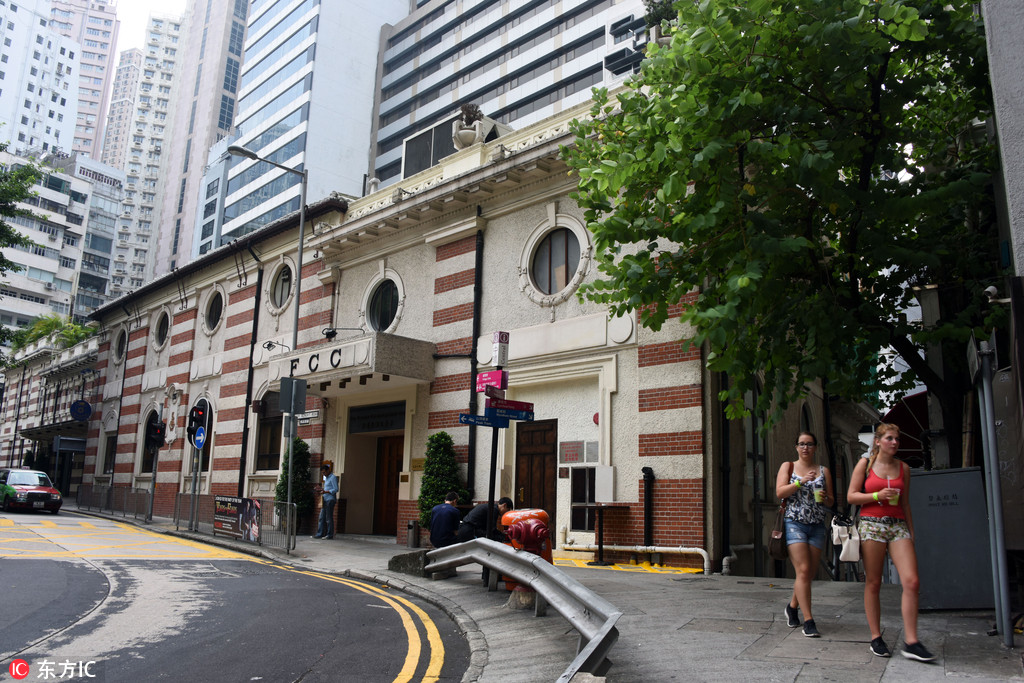HK media club out of order in its pursuit of headlines: China Daily editorial
chinadaily.com.cn | Updated: 2018-08-07 20:13

The frenzy in the Western media over the official stance of the Chinese government regarding the Foreign Correspondents’ Club in Hong Kong inviting a known separatist as guest speaker at a luncheon is contrived and ideologically motivated.
The official statement issued by the Office of the Commissioner of the Ministry of Foreign Affairs after the FCC announced its accommodating gesture toward an advocate of Hong Kong separatism was not only justified but also necessary, as it would have sent the wrong message if it said nothing.
Chan Ho-tin, the guest invited by the club to give a speech, is the head of the Hong Kong National Party, an unregistered political group pursuing “Hong Kong independence”, that is connected to and colluding with other separatist forces and openly seeking to “damage Chinese interests”.
The FCC said in a statement that it believes its members and the public “have the right — and in the case of journalists, the professional responsibility — to hear the views of different sides in any debate”.
But by claiming it does not necessarily endorse what is being said, and it is merely defending the right to say it, it is being disingenuous and dissembling.
The Basic Law of the Hong Kong Special Administrative Region stipulates that the rights and freedoms of residents, including freedom of speech, are safeguarded, but, as in other places, only in accordance with law.
When it comes to expressing political views, while the law may not control what you say, it can delineate where, when and how you say it.
None of the civil and political rights and basic freedoms protected by the Basic Law and local laws is absolute or unlimited, meaning they cannot be used as excuse to facilitate attempts to challenge China’s sovereignty, which the law states is inalienable.
That it only invited Chan to be a guest speaker after the secretary for security of the SAR government confirmed he was considering a recommendation by the Hong Kong Police Force to stop the operation of the HKNP according to Section 8 of the Societies Ordinance, shows the colonial-era club is simply trying to be provocative.
But there is little public support for its stunt. An opinion poll conducted on Monday shows that 84 percent of the respondents think it is inappropriate for the FCC to invite an advocate of “Hong Kong independence” to be a guest speaker.
The Western media must realize the FCC has no special privilege and it should act maturely instead of providing a platform for those who are inciting people to break the law.
























